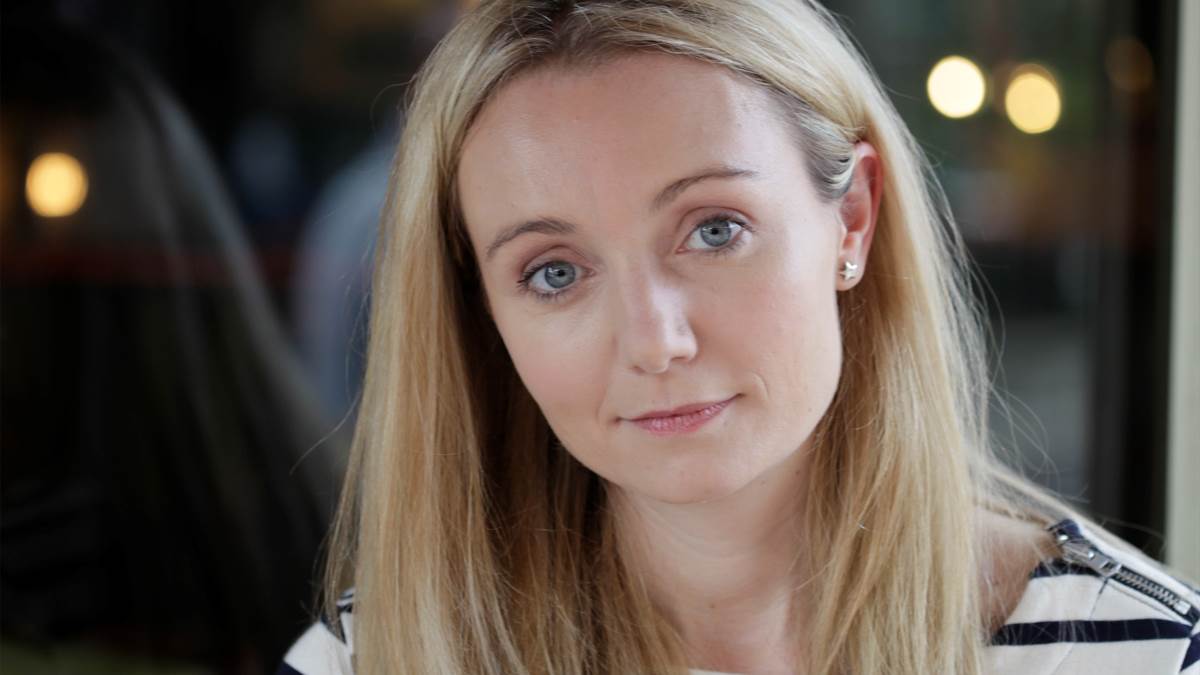'People always assume it's awful': Cerrie Burnell on her life with dyslexia
Published on: 02 October 2017 Author: Alex Strick
In Dyslexia Awareness Week, broadcaster and author Cerrie Burnell reveals how her diagnosis has shaped her life - including in many "wonderful" ways.

How did dyslexia affect you as a child?
If you have dyslexia, it constantly affects you – but not necessarily in a negative way. People assume it’s always awful. Actually I was quite happy – it was just that in my first four years of formal education, I really didn’t learn anything at all. It was always a miracle to me that all the other children could read and write.
What was life at school like?
It was an education in daydreaming. I had one hand, and couldn’t read or write – yet I was never made to feel different or difficult. However, I’d have a spaghetti junction of thoughts in my mind, and it was hard to concentrate on what was going on in the classroom. There were so many other interesting happening – birdsong outside the window, my teacher’s new shoes, the possibility of snow… It’s like you’re like a fish in the sea, and you’re told you must only swim in a straight line. Why go in a straight line when you could swim off to the Caribbean?
How and when was it diagnosed?
At the end of infant school, I was kept down a year. I went from being youngest in the class to eldest, but still I couldn’t read or write. Then thanks to my parents, I had a private assessment and started three hours of private 1:1 tuition a week and after three months, I could read.
Did you ever feel stupid or try to hide your dyslexia?
No. It is your whole personality – you can’t hide it. Thank goodness I was only eight when I got the help I needed. I hear some horror stories about young people being punished for not reading, and their self-esteem can end up on the floor. Then it’s impossibly hard to re-educate yourself as an adult and develop any kind of self-belief. Likewise my parents were never felt inadequate, or under pressure to make me read. Also they were always reading to me, so I never missed out on books and stories.
How does it affect the way you think?
For me, everything has to have an emotional significance. I remember a teaching assistant describing a maths problem in which there were two ponds with five fish in the first and one in the second. Then two fish jumped from the first pond into the second. Instead of being able to work out how many were in each pond, all I could think about was why one fish had been alone – wasn’t he lonely? And did the two who jumped become friends with him? And why did they jump?
Are there positive aspects to dyslexia?
Very much so. For one thing, I became really good at learning by ear. This meant that I was really good at drama. At school, I was the person everyone wanted to hear read, because I’d dramatise the reading. Not only could I express myself, but I could also memorise the things people read to me. I was really good at learning lines, and this remained very useful as I started my media career.
How does dyslexia affect aspects of your life now?
My poor editors have to put up with a lot of correcting of spelling, grammar and punctuation. And organisation is hard. I’m learning to drive at the moment and the theory is particularly painful. Concentration is a challenge. I constantly have a hundred different things going on in my head – but this can be a useful thing for a writer.
Can you offer any tips on managing dyslexia?
The key is having someone looking out for you. This could be someone at home or someone at school, like a brilliant Senco (of which there are a shortage). The problem is that it all still comes down to money and teachers are under so much pressure. Provided you have the support, it’s not a big thing. What is negative is the way some people respond to it.
What is dyslexia to you?
It is who I am. While someone else will make a decision based on whether they can afford to do something, for me it’s an emotional decision. So I wouldn’t have done half the things I’ve done if I didn’t have dyslexia.
Any final words of advice?
Dyslexia is a wonderful thing and nothing to be frightened of. Whatever you want to do, you will find a way to do it. There is no shame in not being able to read. You may just need a different route in. And there are a million ways to enjoy books (like audio book and apps).
There is a lovely quote from Albert Einstein: 'Everybody is a genius. But if you judge a fish by its ability to climb a tree, it will live its whole life believing that it is stupid.'
Cerrie Burnell's new book Harper and the Fire Star is out on October 5, published by Scholastic.
Topics: Bookmark, Librarian, Parent/carer, Teacher (primary), Teacher (secondary), Writer, Dyslexia, Interview, Features





